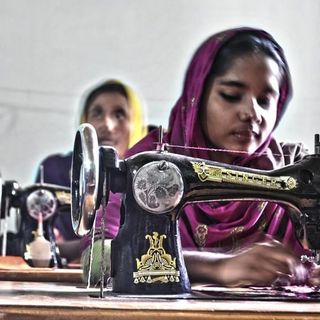The UN, in collaboration with UN Women, tweeted a list of gender-neutral words earlier this week reminding people to replace commonly used gendered expressions in the English language. However, the list was met with strong backlash.
Calling the UN a “tone-deaf, incompetent organization,” social media users criticized the fact that it was focusing on policing language at a time when the pandemic is claiming lives globally. In fact, some users went on to say that “UN Women” is not a gender-neutral term either.
But efforts to achieve gender parity don’t stop during a global health crisis. In fact, under the Covid19-prompted lockdown, cases of domestic violence against women are alarmingly off the charts, cybercrimes against women have spiked, and female workers are facing highly disproportionate numbers of job cuts as compared to their male counterparts. In addition, the US, which the largest donor to the UN, has urged the organization to drop abortion as an essential service from its Covid19 response plan. So, if anything, one could argue that is even more imperative right now to push for gender parity.
Related on The Swaddle:
Study: People Find Women Wearing Make‑up More Trustworthy
Nonetheless, while most of the suggestions in the list — like replacing ‘mankind’ with ‘humankind,’ ‘manpower’ with ‘workforce,’ and ‘policeman’ with ‘police officer,’ among others — have already become a part of common parlance, replacing ‘businessman’ with ‘representative’ or ‘maiden name’ with ‘family name’ can severely alter the meaning of what a person is trying to express, as a number of people pointed out. In fact, calling one’s ‘landlord’ one’s ‘owner’ can bring in problematic connotations related to slavery.
Despite the list’s flaws, the impetus for gender-inclusivity in colloquial speech is still an important goal. Changes in its perceptions and norms are reflected in the language people use. When language serves as our primary medium of expression, it can become a necessary tool for promoting social change, and it must reflect the attitudes our societies aspire to.




